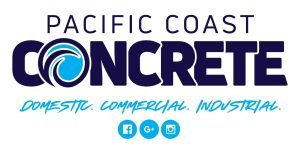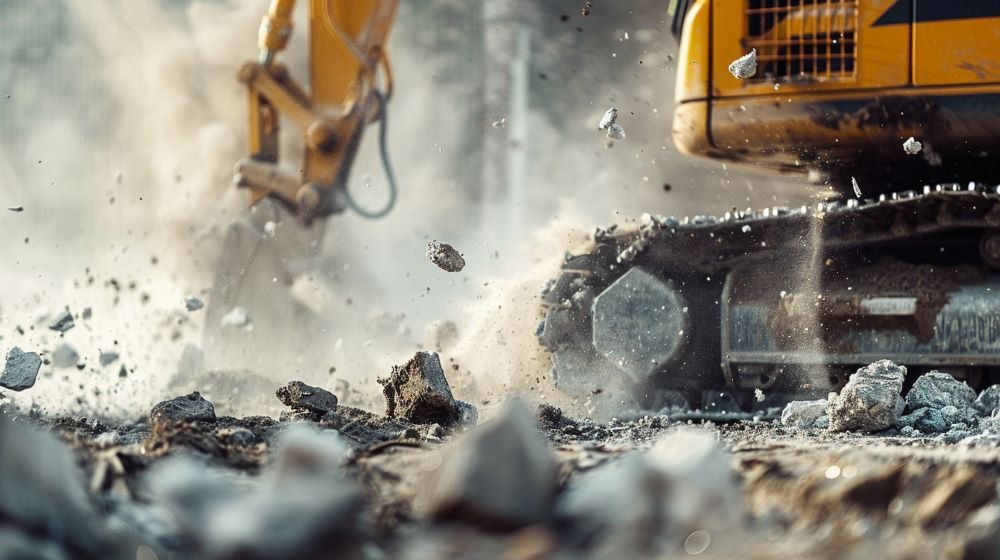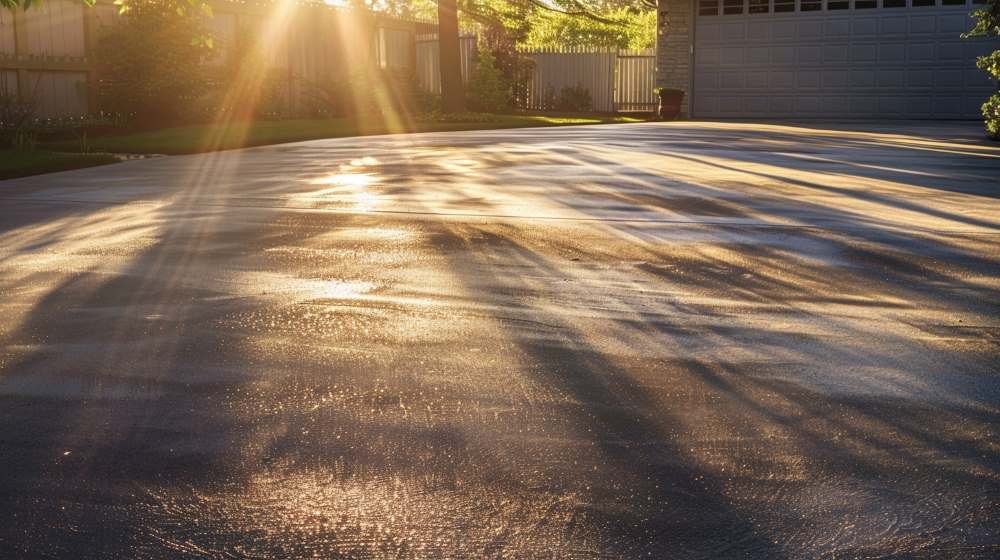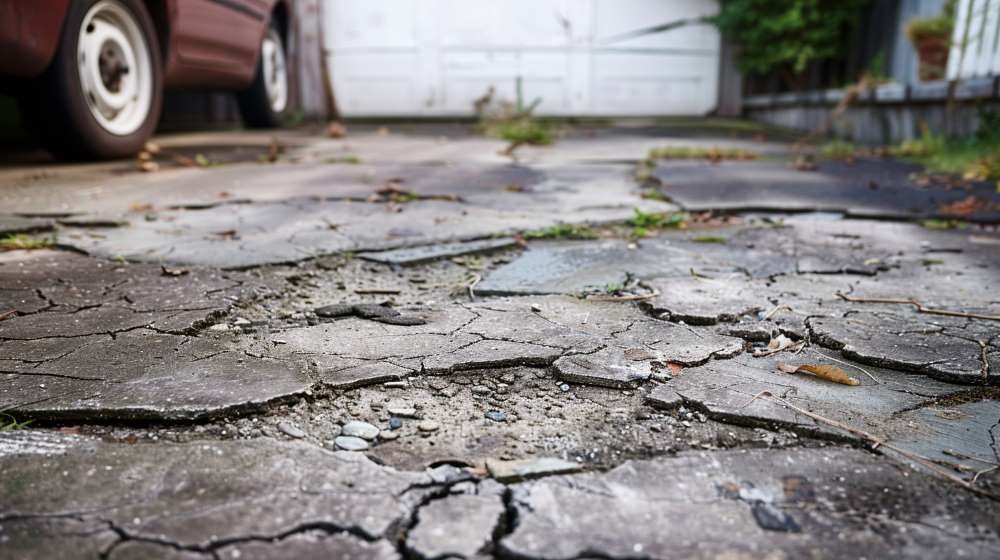When considering the installation of a driveway, two materials that come to mind are asphalt and concrete. Both have their advantages and disadvantages when compared against one another, but in order to make an informed decision as to which material is right for your situation, it is important to understand how they compare. This article will explore the differences between asphalt and concrete driveways by looking at several aspects such as cost, durability, maintenance requirements, longevity and environmental impact. By examining each factor individually, readers can gain insight into which material might be best suited for their particular needs. The discussion presented here should provide a comprehensive overview of both asphalt and concrete driveways so readers can confidently choose the option that works best for them.
1. Overview Of Asphalt And Concrete Driveways
When deciding which type of driveway to install, two main materials are typically considered – asphalt and concrete. Asphalt driveways are composed of a mix that includes stones, sand and bitumen, while concrete driveways consist primarily of Portland cement and water. Both have advantages and disadvantages that should be taken into account when making the decision between them.
Asphalt is generally cheaper than concrete and easier to install since it does not require as much labour or specialized tools. It can also be repaired relatively easily if damage occurs by filling in any cracks with new asphalt material. On the other hand, its dark colour means it absorbs more heat from the sun so may become too hot for bare feet during summer months here on the Gold Coast. In addition, because it contains petroleum-based products such as oil and tar, it has an unpleasant odour when first applied before aging over time.
Concrete offers greater longevity compared to asphalt as well as being aesthetically pleasing due to its lighter colours which reflect sunlight rather than absorb it like asphalt resulting in cooler temperatures on hot days. Furthermore, unlike asphalt, concrete does not need repairs over time; however, this strength is balanced out by the fact that initial installation requires more effort since the mixture needs to set properly before use.
In conclusion, both asphalt and concrete offer their own unique benefits depending upon individual preferences regarding cost and aesthetics among others factors requiring consideration when selecting one over the other for driveway installation purposes.
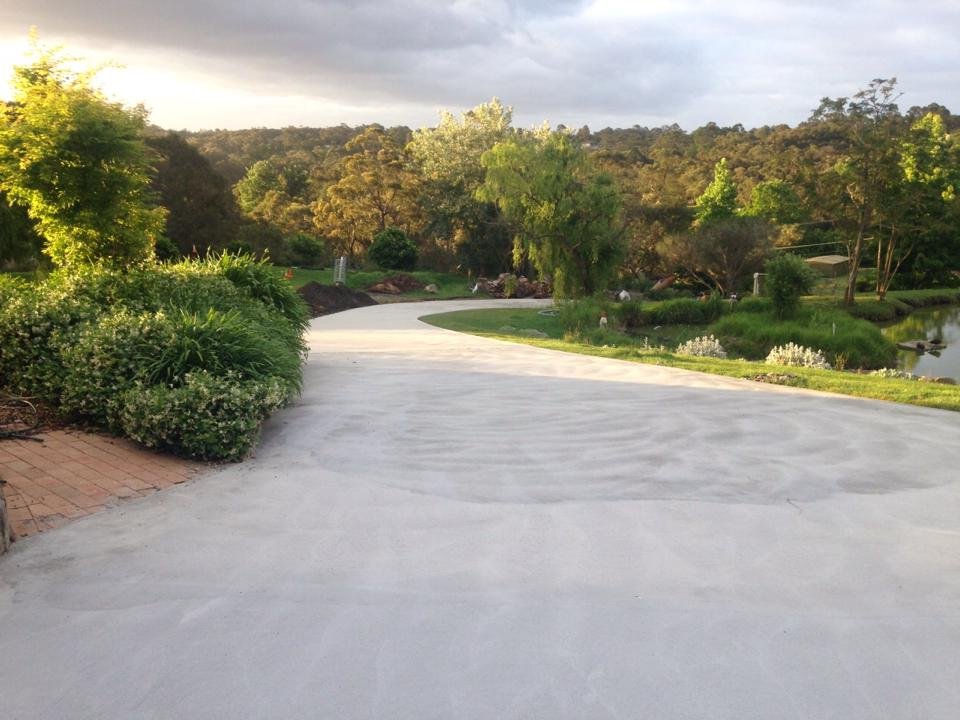
2. Costs Of Asphalt And Concrete Driveways
The costs of installing asphalt and concrete driveways vary depending on several factors. For instance, the size of the driveway is a major determinant as larger areas require more materials and labour. Additionally, custom designs can increase costs due to added complexity in installation. The cost of materials also differs between asphalt and concrete; while asphalt is generally less expensive than concrete initially, it typically needs replacing within 10 years whereas concrete lasts for an average 20-30 year lifespan before requiring repairs or replacement.
Labour costs are another component that affects overall pricing. Asphalt installations usually take 1-2 days and entail preparing the site prior to laying down the material followed by compaction with a roller machine to ensure evenness. Concrete takes longer since proper curing is necessary after it has been poured into place; this process could take up to three weeks depending on weather conditions during installation and requires frequent maintenance such as keeping it wet or covering with plastic sheets during the first few days following completion.
Both types of pavement come with their own advantages and disadvantages when considering longevity, cost-effectiveness, ease of repair/replacement, resistance to extreme temperatures, safety features (e.g., skid resistance), aesthetic appeal etc. Hence, homeowners should carefully weigh all these elements before deciding which type will suit their needs best.
3. Benefits Of Asphalt Driveways
The third point to consider when comparing asphalt and concrete driveways is the benefits of asphalt. Asphalt driveways are often cheaper than concrete alternatives, as they require less material overall which can help save costs on installation. In addition, asphalt typically requires less maintenance over time than concrete due to its ability to naturally fill in cracks that come with age or temperature changes. This helps homeowners avoid costly repairs down the line by allowing them to keep their driveway intact for longer periods of time.
Another benefit of an asphalt driveway is that it can be used almost immediately after installation because the material quickly dries and sets up within a day or two. Concrete, on the other hand, may take several days or weeks before it fully cures and becomes ready for use again. This makes asphalt ideal for those who need quick access to their driveway without waiting around for curing processes.
Asphalt also tends to hold heat better during winter months compared to concrete surfaces, resulting in faster snow melting times and fewer ice patches along the surface of your driveway. This feature can help reduce slips and falls that could occur if icy spots remain long after a heavy snowfall has ended. Overall, these advantages make asphalt attractive option when considering options for driveway materials.
4. Benefits Of Concrete Driveways
Concrete driveways offer numerous benefits, including increased longevity and a variety of design options. A concrete driveway is created by pouring wet concrete onto the surface area and allowing it to set. This type of material provides several advantages over asphalt such as its durability in extreme weather conditions and aesthetic appeal.
One benefit of using concrete for a driveway is that it lasts longer than asphalt. Concrete does not break down or erode due to exposure to sunlight or water as quickly as asphalt does, making it ideal for long-term use. Additionally, regular maintenance like sealing can help extend the life of a concrete driveway even further.
Another advantage of installing a concrete driveway is the range of design options available that can increase your propertys kurb appeal. From various colours and patterns to stamped designs, homeowners can customize their concrete driveways to match the look and feel they want for their property while still providing an efficient, durable solution. Furthermore, because concrete is easy to shape during installation, curves and other unique features can be incorporated into the design with relative ease.
In addition to being more resilient than asphalt and offering plenty of customizable options, concrete also has environmental benefits since it absorbs heat from the sun rather than reflecting it back out like many other materials do; this helps keep properties cooler during hot summer months without having to rely on air conditioning units.
5. Maintenance Requirements For Asphalt And Concrete Driveways
Maintaining an asphalt or concrete driveway requires special attention to ensure the longevity of its durability. Proper maintenance is necessary in order to maintain a level surface and protect against cracks, potholes, weeds, erosion, and other damage that can occur over time. This article will discuss the different requirements for maintaining each type of driveway.
Asphalt driveways require regular sealcoating every three to five years as well as spot repairs when needed. Sealcoating helps extend the life of your driveway by filling minor cracks and preventing further deterioration due to oxidation from weather elements such as sun, rain and snow. It also provides protection against oils spills that may cause staining on the pavement. Additionally, it gives your driveway a uniform look while increasing traction between tires and pavement during wet conditions. To get the most out of sealcoating, it should be applied following any repair work done on the driveway such as patching up cracks or filling holes.
Concrete driveways are more durable than asphalt but still require proper maintenance in order to maximize their lifespan. Regular cleaning with detergents is recommended in order to prevent dirt build-up which can lead to stains and discolouration if not treated promptly. Oil spots should also be dealt with immediately using hot water and a degreaser solution in order to prevent them from seeping into the porous material of concrete paving slabs causing irreparable damage. Moreover, sealing concrete surfaces every two or three years will help keep it looking new while protecting it from moisture infiltration caused by harsh weather conditions which could result in cracking or spalling over time.
It is important to note that both types of driveways need periodic inspection for any signs of wear or damage so they can be taken care of before major problems arise resulting in costly repairs or replacement down the line. Taking preventive measures now will go a long way towards preserving your investment for many years ahead without having any regrets later on.
6. Installation Process Of Asphalt And Concrete Driveways
The installation process of asphalt and concrete driveways is an important factor to consider when deciding between the two materials. Both types of driveway require preparation prior to commencement, but there are key differences in the actual construction procedure that should be considered before making a decision.
Asphalt driveways typically require excavation down to a depth of approximately 8 inches for a residential install. The material used must then be compacted with a plate compactor or roller in order to ensure its structural integrity. A base layer of gravel is laid over top after which either hot mix asphalt or cold mix asphalt may be poured as the top surface layer depending on local conditions and preferences. Generally speaking, this type of driveway can be completed within one day due to quick drying time if hot mix asphalt is used.
On the other hand, concrete driveways tend to take longer than their asphalt counterparts; usually requiring at least 2-3 days from start to finish. Site preparation involves digging out the area down to 6-10 inches deep and installing forms along the edges in order to contain the wet concrete while it sets. As well as being more labour-intensive compared to asphalt, cement requires additional components such as rebar or wire mesh for reinforcement purposes during installation which adds further cost and complexity. Once all layers have been placed correctly, curing takes place over several weeks in order for the material’s full strength potential to be realised.
In summary, both asphalt and concrete driveways offer unique advantages depending on individual requirements and personal preference; however, taking into account installation timescales and associated costs makes them easier choices when selecting your ideal driveway material option.
Conclusion
When deciding between asphalt and concrete driveways, there are several considerations to keep in mind. The cost of the driveway is an important factor, as well as the benefits offered by each material. Asphalt offers a more flexible surface with better traction while concrete provides a longer lifespan with greater durability. Maintenance requirements for both materials should also be taken into account since they require different levels of upkeep over time. Finally, it is essential to understand the installation process of each option before making a decision.
Ultimately, choosing between asphalt and concrete driveways depends on individual needs and preferences. For those looking for affordability and ease of maintenance, asphalt may be the best choice due to its low cost and simple repair process. Those seeking longevity and strength can opt for concrete which requires more intensive installation but offers increased resistance against weathering elements such as freezing temperatures or heavy rainfall.
No matter which material is chosen for a driveway project, understanding the pros and cons associated with each option will help ensure that the most suitable solution is selected for individual needs. Consideration must always be given to costs, benefits, maintenance requirements, and installation processes when selecting asphalt versus concrete driveways so that expectations can be properly managed throughout the entire project cycle.
